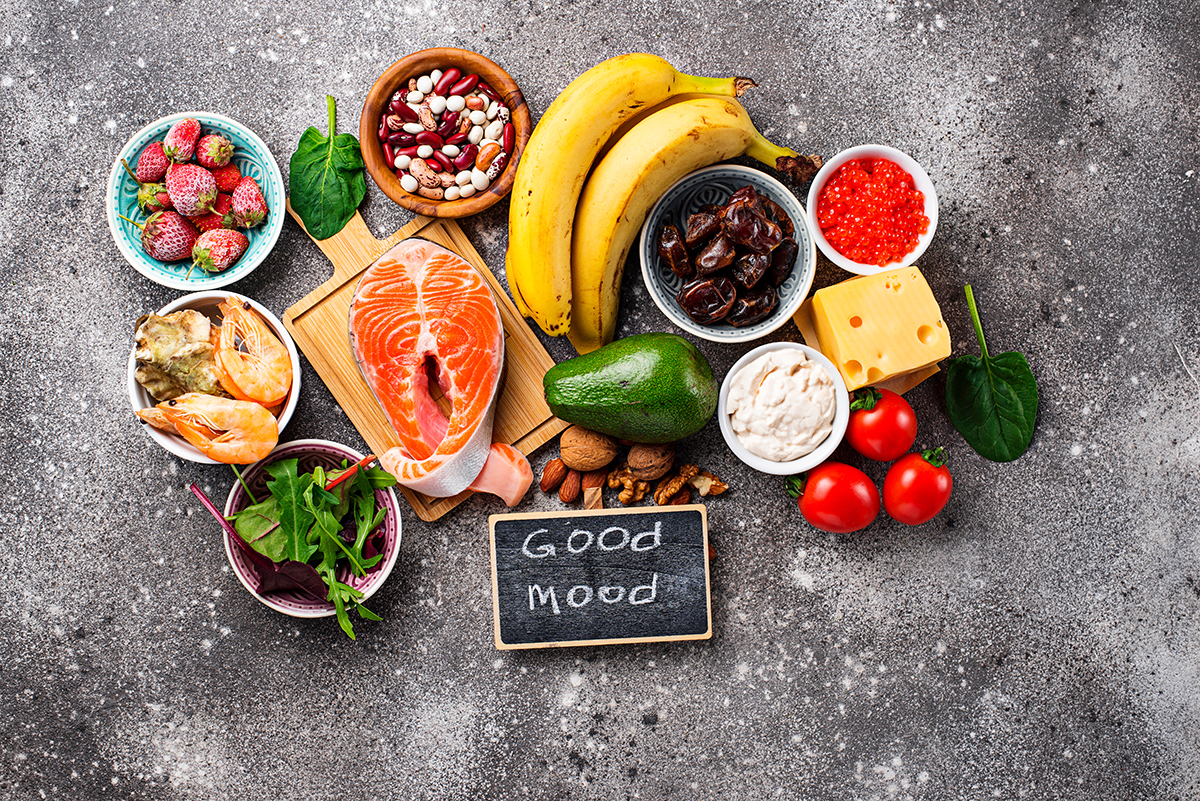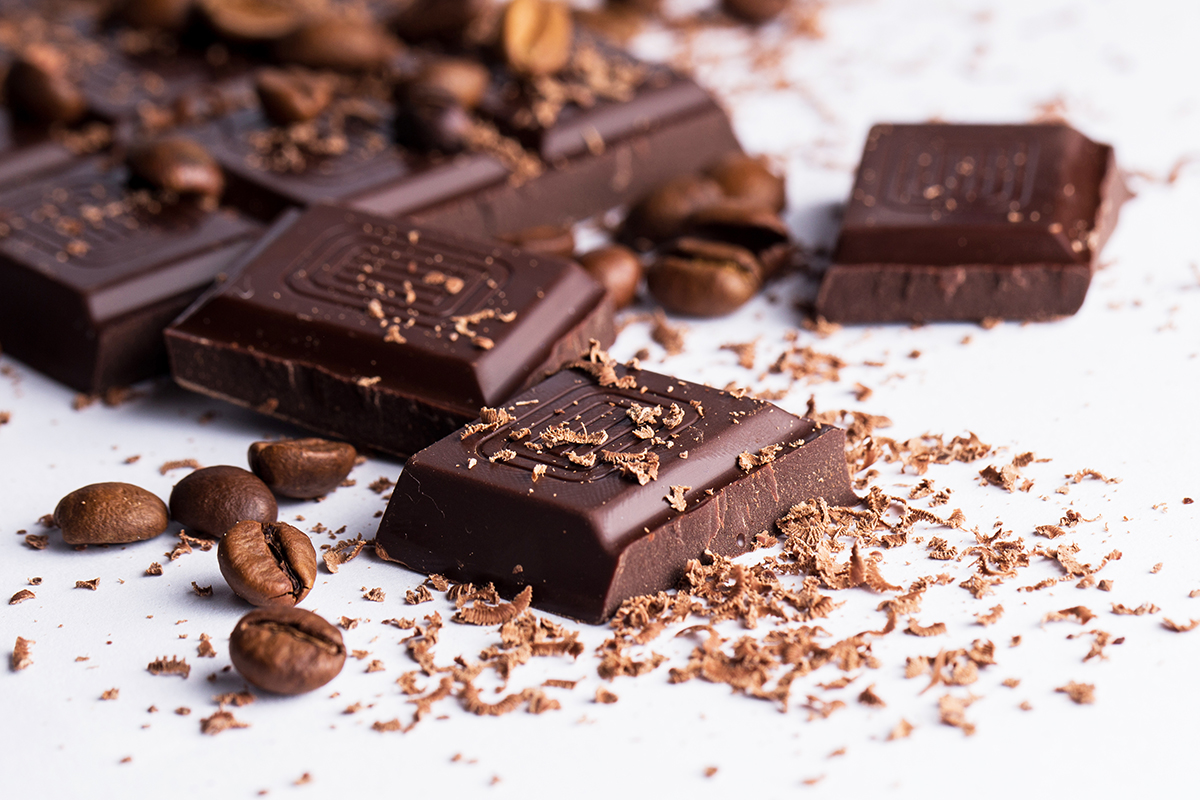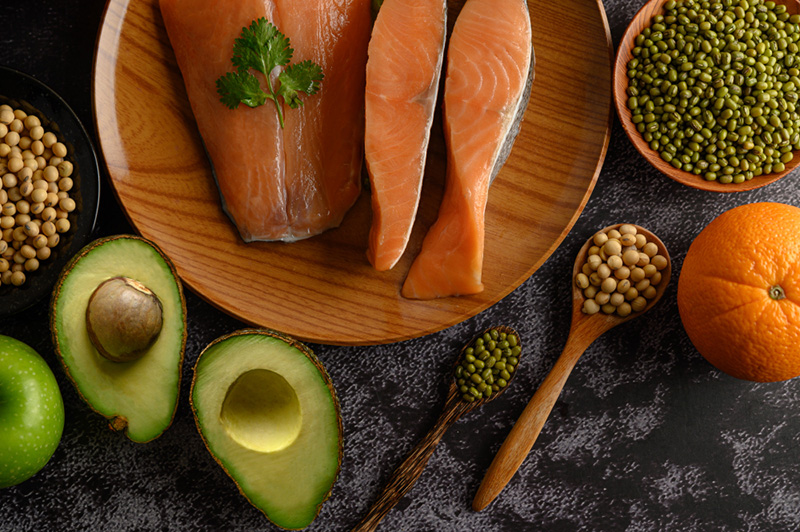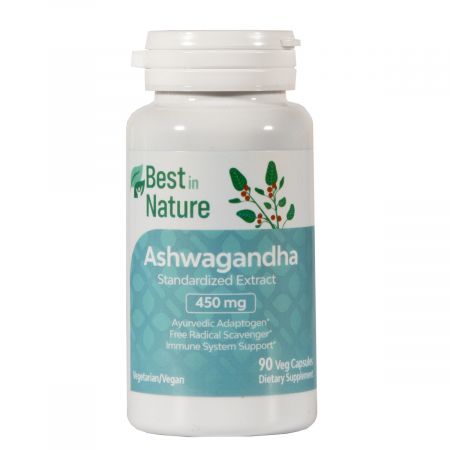
We’ve all heard the terms comfort food and stress eating. It probably goes without saying that if you’re dealing with stress this way, it can be damaging to your body. This naturally leads to the question of whether there are any healthy foods that can also improve your mood. We’re happy to report there are quite a few.
Coffee

Need coffee for that morning pick-me-up? There’s a scientific basis for that. Coffee actually increases the release of the mood-enhancing neurotransmitters norepinephrine and dopamine. Historically, people have attributed coffee’s feel-good effects to caffeine but that isn’t the sole source of coffee’s benefits.
In a placebo-controlled study, even participants who drank decaffeinated coffee experienced greater alertness suggesting other compounds in coffee are also sources of its benefits.
Chocolate

If you reach in your desk drawer for a chocolate when you’re feeling stressed, science has your back. As many have long suspected, chocolate has been found to promote feelings of calm and contentment and may even reduce the risk of depression in placebo-controlled studies.
It’s believed that the antioxidant qualities of dark chocolate can mitigate the effects of the stress hormone cortisol. Proceed with caution though, chocolate is still calorie-dense and easy to overeat.
Fatty fish

Fatty fish should already be on your menu at least twice a week for its heart-healthy benefits. But it turns out an additional benefit of the Omega-3 fatty acids in these fish is that they may go some way in relieving depression according to Harvard Health. The dose of Omega-3 found to be helpful was around 1 gram a day; equal to eating fish about three times a week.
Disclaimer: Omega-3 cannot replace medications and shouldn’t be used this way. See the full article from Harvard Health for more details on Omega-3 and its effects on mental health.
Fermented Foods
Fermentation began as one of the primary methods of food preservation. Even with refrigeration, fermented foods are still enjoyed for their flavors and healthy probiotic bacteria strains.
Because of what’s known as the gut-brain axis (a connection between gut health and mental health), maintaining a healthy gut can help to promote a healthy mood as well. On the other hand, excessive stress can be detrimental to gut health and worsens IBS for some.
Top examples of fermented foods include kimchi, sauerkraut, and yogurt.
Bananas

Tryptophan is mainly associated with Thanksgiving turkey but bananas are also rich in this mood-boosting amino acid. Tryptophan helps the body produce the neurotransmitters serotonin and melatonin.
Studies on direct tryptophan supplementation showed that the increased serotonin levels increased agreeableness with researchers theorizing that serotonin not only has direct effects on mood but may have a secondary effect of improving mood by making social interactions better. Also, melatonin helps you get to sleep and a good night’s rest could put you in a better mood as well.
Oats
Oats are a morning mood-boosting superstar. As with bananas, they’re also rich in tryptophan. The fiber in oats can also stabilize your blood sugar levels preventing fatigue, irritability, and mood swings. While other whole grains provide this benefit as well, oats are also a good source of iron which can prevent anemia and the resulting fatigue, and mood disorders it can cause.
Berries

Although the link isn’t precisely understood. The antioxidant and anti-inflammatory properties of berries may help to mitigate stress and other mood disorders. Berries are rich in anthocyanins which give blueberries and blackberries their rich color.
An epidemiological study on diets rich in anthocyanins showed an association with decreased depression risk.
Nuts
For those who are eating plant-based, nuts are great sources of mood-boosting Omega-3 and tryptophan. Diets rich in nuts, especially, walnuts, are associated with better cognitive performance and reduced depression risk.
Beans
Beans are truly a feel-good food. They’re rich in B-complex vitamins and can raise levels of several mood-regulating neurotransmitters including serotonin, dopamine, norepinephrine, and gamma-aminobutyric acid (GABA).
Beans also provide the minerals zinc, magnesium, selenium, and iron, which may also play a part in improving your mood. If you don’t already, eat beans regularly, you should integrate into your diet slowly. They can cause digestive upset for some but this effect subsides for those who eat them regularly.
Dark Leafy Greens

The neurotransmitter glutamate is essential for normal brain function but excessive amounts can lead to depression and anxiety. Magnesium helps to keep glutamate in check but up to fifty percent of Americans don’t get enough.
Kale, collard greens, and spinach to the rescue. Dark leafy greens like these are the best sources of magnesium on Earth. While it isn’t as tasty as chocolate, a nice kale salad might just be the mood boost that you need.
Eggs

Eggs are loaded with mood-boosting benefits. They’re uniquely rich in choline, a nutrient that supports the nervous system, improves mood, helps with liver function and plays a role in fat metabolism.
As with berries, the exact link hasn’t been proven but an analysis of US adults found that dietary intake of choline was associated with better moods and inversely related to depressive symptoms.
Bottom Line
Comfort foods may taste good but they’re often detrimental to your health. Instead, see if these healthier options put you in a better mood.
This article is provided for informational purposes only and is not intended to be used as medical advice. If you have immediate concerns about your health, please seek the help of your physician.
*These statements have not been evaluated by the Food and Drug Administration. Products are not intended to diagnose, treat, cure or prevent disease.





Validate your login
Sign In
Create New Account